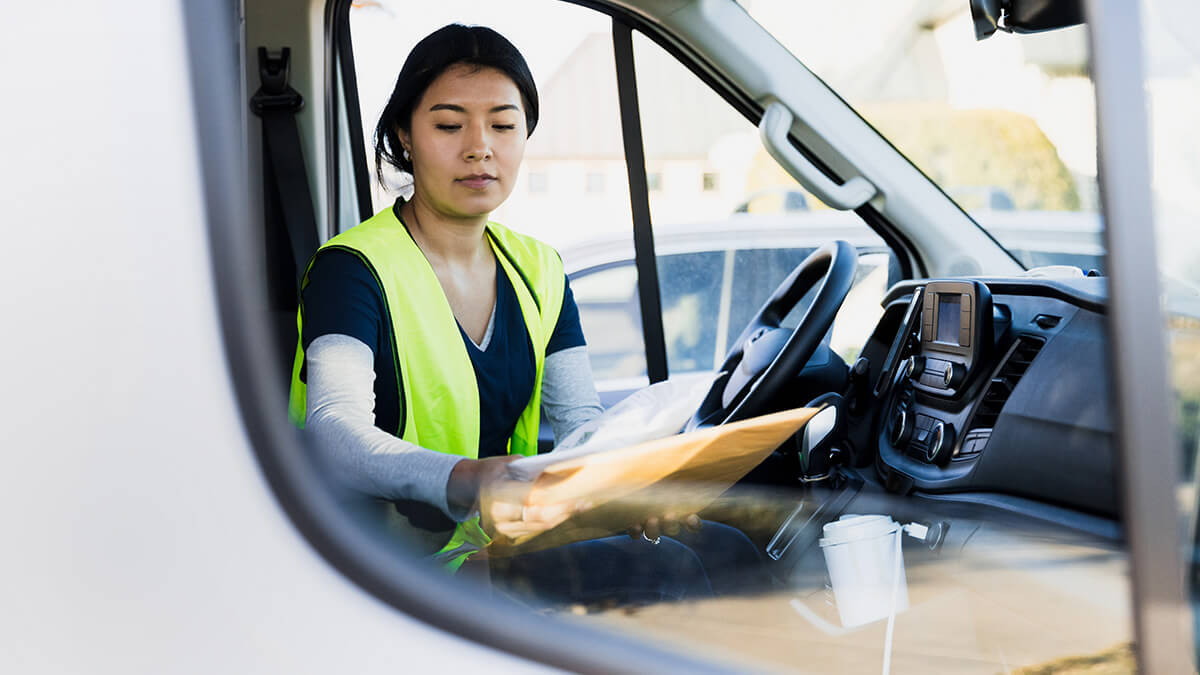If you have a business in Colorado that delivers or ships products to customers within the state, you may be responsible for the Colorado delivery fee.
Read on to get the scoop on this retail delivery fee.
What is the Colorado delivery fee?
The Colorado delivery fee is an additional fee for deliveries made by motor vehicles to a location within Colorado. The fee is paid solely by the customer, not the retailer. This state-wide retail delivery fee is calculated per transaction or sale, not per item.
For example, if a customer shops online and purchases several items in their “cart,” only one delivery fee applies, even if the items ship separately. The fee applies to any transaction involving items subject to sales tax. In other words, the fee doesn’t apply to shipping, only to the items purchased.
The Colorado delivery fee is $0.28 (from July 2023 to June 2024). As a retailer, you must add it to all qualifying orders.
Again, the customer pays the fee, while retailers collect and remit the fee to the Colorado Department of Revenue.
The retail delivery fee includes six fees that fund Colorado’s transportation system and infrastructure development. Here are the current fees and rates:
| Fee Type | July 2023 – June 2024 |
|---|---|
| Community access retail delivery fee | $ 0.0716 |
| Clean fleet retail delivery fee | $ 0.0550 |
| Clean transit retail delivery fee | $ 0.0311 |
| General retail delivery fee | $ 0.0870 |
| Bridge and tunnel retail delivery fee | $ 0.0280 |
| Air pollution mitigation retail delivery fee | $ 0.0073 |
| Total retail delivery fee | $0.28 |
How the retail delivery fee works
Collecting the retail delivery fee is your responsibility as a seller.
You must print the total retail delivery fee of $0.28 on the receipt or invoice. Label the fee as retail delivery fees and add it to the receipt’s total. When you label the retail delivery fee, make sure that it is separately stated from the purchase price, the sales or use tax, and any other fees or charges listed.
Customers do not have to pay the delivery fee if it is not properly marked on the receipt.
There are a few additional things you should keep in mind. The Colorado delivery fee applies even when you offer free shipping and includes deliveries made by the United States Postal Service.
The fee is non-refundable. If a customer returns their order, you don’t have to refund their delivery fee.
Exceptions to the Colorado delivery fee
There are some exceptions to the Colorado delivery fee you should know about.
You do not have to apply the delivery fee if:
- Every item in the retail sale is exempt from sales tax
- The delivery is for a customer living outside of Colorado
- You are a wholesale retailer delivering a product to a licensed dealer
- You sell through an online marketplace AND the marketplace facilitator collects state sales tax (in this case, the delivery fee is the responsibility of the online marketplace facilitator)
- The delivery is made by a non-motorized vehicle such as a bicycle
- You are an out-of-state retailer that isn’t required to remit sales tax to Colorado
- The customer picks up an online order in store
- You run a business in a vehicle that is stationary when the sale is made (e.g., food trucks)
Want to impress your friends at a dinner party?
Get the latest accounting news delivered straight to your inbox.
How the Colorado delivery fee affects small business owners
The Colorado delivery fee is solely the responsibility of retailers. As such, you must handle and remit the fee properly.
Account registration
On July 1, 2022, retailers were automatically registered for a state of Colorado retail delivery fee account if they had an active sales tax account, a retailer license, or any sales tax liability reported after January 1, 2021. There is no license or registration fee to worry about.
If you were not automatically registered, there are two different ways to register, depending on the status of your sales tax account.
1. Existing sales tax accounts
If you already have a sales tax account with the state of Colorado but are unsure if you have a retail delivery fee account, you can go to Revenue Online to find out.
Once you are logged in to your Revenue Online account, follow these steps:
- Click the “more” tab
- Select the “additional actions” panel
- Choose “add retail delivery fee account”
If you complete these steps and don’t see the “add retail delivery fee account” link, you may already have an account.
Still confused? Check in with the Colorado Department of Revenue website for more details.
2. New accounts
If your business is new and doesn’t have an active sales tax account, here’s what you need to know. You can create an active sales account and a retail delivery fee account at the same time by submitting Form CR 0100, Instructions for the Colorado Sales Tax and Withholding Account Application, to the Colorado Department of Revenue.
To receive a retail delivery fee account, make sure to mark “Yes” in section C3 to answer the question “Do you sell taxable items that will be delivered by a motor vehicle (including deliveries made by a third party)?”
Your responsibilities as a retailer
The Colorado delivery fee affects retailers in Colorado in a number of ways. Again, retailers do not pay the fee—they only collect and remit it to the Colorado Department of Revenue.
Colorado retailers applying the fee should also:
- Label the fee correctly on receipts and invoices
- Report the fee on Form DR-1786, Retail Delivery Fee Return
- File returns every month, on or before the 20th day of the month after each reporting period
- Use Colorado’s Revenue Online system to file and remit retail delivery fees
If you’d prefer to file a paper return, mail your return to the following address:
Colorado Department of Revenue
Denver, CO 80261-0009
Late payments
You are responsible for filing returns and making payments by the appropriate deadlines. If you miss these deadlines, the penalty is whichever is greater than $15 or 10% of the net fee, plus 0.5% for each month the fee remains unpaid. The penalty will not exceed a total of 18%.
Don’t let messy accounting books get in the way of running your business. Patriot’s accounting software helps you easily correct entries, makes data import a breeze, and offers unlimited users so qualified team members can pitch in. And, just in case you need help, Patriot offers free expert support. Try it for free today!
This article has been updated from its original publication date of October 4, 2022.
This is not intended as legal advice; for more information, please click here.




